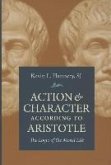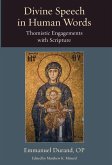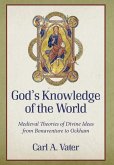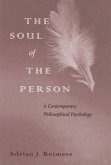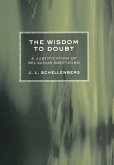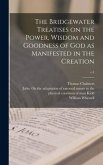"Guiding readers through vision one of Collationes in Hexaèemeron, Benjamin Winter argues that Bonaventure's rejection of certain philosophical errors ought to be understood within the context of the virtuous person's journey to wisdom. Propositions such as the eternity of the world, the unicity of the intellect, and fated necessity are not variables in a zero-sum equation "balanced out" by truths of faith. Instead, Bonaventure sees these propositions as opportunities to reflect charitably on nature and grace, emphasizing that just as knowledge is empty without love, understanding is insufficient without humility"--
Hinweis: Dieser Artikel kann nur an eine deutsche Lieferadresse ausgeliefert werden.
Hinweis: Dieser Artikel kann nur an eine deutsche Lieferadresse ausgeliefert werden.


